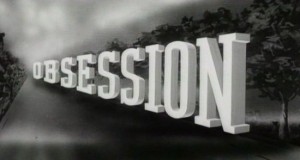How I became a fanatic
Years ago, my wife Judy and I had a baby with problems. Something bad must have happened to him prior to and/or during birth. We didn’t know that at the time. I mean, he looked great! But as an infant he cried pretty much nonstop and vomited frequently. And then he began missing developmental milestones, such as learning how to crawl.
Judy and I wanted to make things right. Who wouldn’t? The little guy depended on us. And by the way life at our house was not much fun. So we wasted no time in taking him to doctors. We found it a little confusing when those doctors simply told us to wait.
Waiting’s hard when a child shrieks all day and night. Judy and I were new at parenting, but surely this had to be outside the norm. How did other parents handle this kind of situation? Judy thought some people in our shoes might even hurt their kids. There were stories like that in the news. Lacking a better idea, she phoned a child-abuse hotline.
“What do people do?” She demanded. “What do they do when their baby keeps on crying and crying and crying?”
The counselor said it sounded like a medical problem and we ought to be seeing a doctor.
After the first year, the many doctors we continued seeing began to change their message. Instead of asking us to be patient, they now said we had to accept reality. Our son would always be different.
What condition did he have, then?
They didn’t say.
He still cried, still threw up, remained immobile. Would this be his future indefinitely? Were we seriously expected to accept this on his behalf?
Actually, we were. One doctor said to park him in day-care and get on with our own lives.
But why? What caused this?
“It just happened.”
When pressed, another pediatrician mentioned the existence of unconventional therapies. “But I’m not going to talk about that,” she added. “You’ll need to ask other parents.” Those other parents put us in touch with a provider who had a partial answer. Joseph had been hurt during delivery, she said. His skull had been compressed and could not expand. He was in pain.
The fact that she was able to alleviate his discomfort, and stop the crying, led us to believe that she’d been at least partly correct.
And later, when another alternative resource showed us how to get him crawling and then (at 39 months) walking, we felt sure that we were on the right track. And that the right track did not involve mainstream providers.
I began writing about the adventure, but the story took a less-upbeat tone as it continued following our trajectory. Years were passing, and Joseph hadn’t acquired speech. Oh, there were a few startling instances in which he said something—and then looked as surprised as we did—but even those tapered off.
I should add that there has never been doubt regarding Joseph’s own desire to have normal abilities. He was our active partner in the cause.
But Judy and I couldn’t ignore accumulating side effects of the effort (we were the ones doing the therapies, all day, every day), and the ongoing frustration, money worries, exhaustion, and loss of perspective. For her, all this led to illness, eventually to death.
And Joseph remained far from where he needed to be, if he was ever going to have any real options in life.
Belatedly seeking balance, I traveled, remarried, fathered and raised a couple new kids (blessedly free of developmental issues), and revived long-forgotten interests such as music.
 All that helped me, and hopefully the others around me, but accomplished nothing for Joseph. And so I couldn’t stop seeking providers who might have ideas. Incredibly, I still didn’t know the cause of his condition, or how it prevented him from acquiring skills. That meant everything attempted was a crapshoot (as it had always been; we’d just been lucky with those early efforts). Since interventions still tended to involve significant effort and financial outlay, my determination began to resemble a gambling addiction.
All that helped me, and hopefully the others around me, but accomplished nothing for Joseph. And so I couldn’t stop seeking providers who might have ideas. Incredibly, I still didn’t know the cause of his condition, or how it prevented him from acquiring skills. That meant everything attempted was a crapshoot (as it had always been; we’d just been lucky with those early efforts). Since interventions still tended to involve significant effort and financial outlay, my determination began to resemble a gambling addiction.
But what’s the alternative, when you see your first-born son sliding backwards? He has begun losing important abilities that I thought were solid!
Recently I took him to a genetics specialist (the only one in town) who said a new diagnostic test would most likely finally identify the cause, at least, of our troubles. For unknown reasons, the illustrious doctor would not perform that test. But gatekeepers bring out my inner bulldog. Joseph and I now have an appointment with specialists in another city, and if they don’t work out we’ll look further.
And when I know what he’s got, that will be one step along the path.
